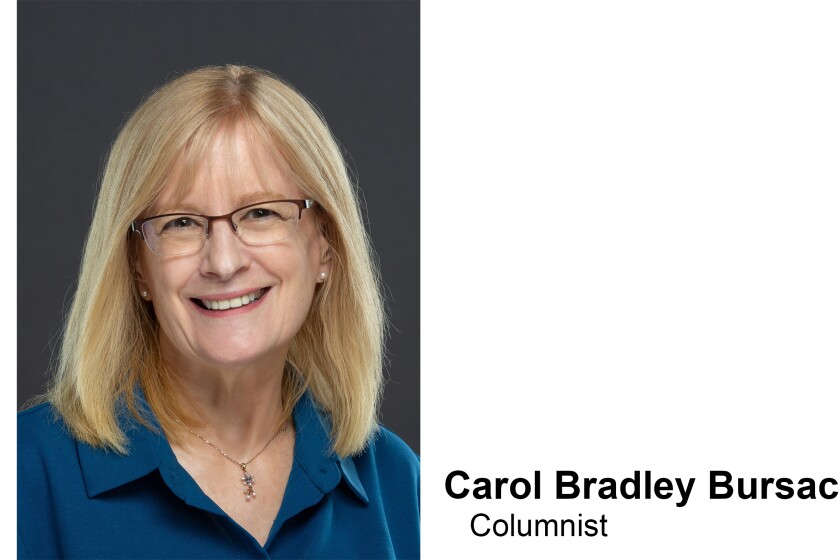Dear Carol: My mother has had and beaten back several types of cancer, but then, at 83, she developed bowel cancer that spread. She said when this cancer was diagnosed that she didn’t want treatment and was at peace with her pending death. Mom’s on hospice care and is at home, though she’s non-responsive for the most part. The staff is good and uses the proper protocol for COVID so I’m incredibly grateful to them.
I can work from home, which is also helpful. Mom seems comfortable, so I have no complaints there either. It’s just that I don’t want to lose her. Of course, I don’t want her to suffer anymore, but my heart hurts as I watch her slip away. Is this selfish? Also, what do I do for her as I sit here by her side, and for myself? — SG.
Dear SG: My heart goes out to you. I’ve been in your shoes with family members, particularly my parents, though I was fortunate in that my sister was also at their side so we could support each other. I also know from different personal experiences the heavy load of being alone with the responsibility and grief as someone passes. Caring staff was a comfort to me as I hope the hospice staff will be to you. Let me add that you are simply human to not want to lose your mother.
Your mom likely knows that you are with her even if she doesn’t seem to register any awareness, so take comfort in that. As to what you can do while you sit by her side, I’m not sure that matters to her. My sister and I purposely talked about years past as a family so that Mom could hear even when she was past responding. Though it may feel strange to you not to have an “awake” audience, you can still talk to your mom about fond memories. Studies have shown that hearing seems to remain even during semi-comatose or comatose states, but what’s important is that you are connecting.
RELATED COLUMNS:
|
|
|
|
ADVERTISEMENT
Recognize, too, that if you are sitting at her bedside for hours every day you can’t keep up a running patter, and likely shouldn’t. That would be exhausting for you and possibly for her.
Sit with her as much as you can, but take breaks. She would want you to do that. Ask the hospice nurse if there are practical things you can do, like moistening her lips and rubbing lotion on her skin. Hold her hand during some of the time you talk with her since that physical contact can comfort you both.
Read. Pray. Work if you can do so. Your hearts are joined no matter what you are doing.
SG, grief is the hard part of being human, but even as your own heart aches, you can be grateful that you have had time with your mom and you can rejoice that once she transitions, her suffering is over. Wishing you peace.
Carol Bradley Bursack is a veteran caregiver and an established columnist. She is also a blogger, and the author of “Minding Our Elders: Caregivers Share Their Personal Stories.” Bradley Bursack hosts a website supporting caregivers and elders at www.mindingourelders.com. She can be reached through the contact form on her website.








